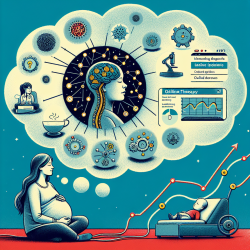Understanding the Transition to Adulthood for Youth with Severe Emotional Disturbances
The transition to adulthood can be a challenging period for any young person, but for those with severe emotional disturbances (SED), the challenges can be significantly greater. The research article "A Multi-Stakeholder Perspective on Factors Affecting Successful Transition to Adulthood for Youth with Severe Emotional Disturbances" provides valuable insights into the factors that can facilitate a successful transition for these individuals.
Key Findings from the Research
The study, framed by Relational Systems Evaluation (RSE) and Positive Youth Development (PYD), utilized a Group Concept Mapping (GCM) approach to gather perspectives from youth, caregivers, service providers, and researchers. The research identified five key clusters of factors affecting the transition to adulthood:
- Life Skills: Skills such as financial literacy, employment preparation, and independent living skills were deemed crucial.
- Personal Development: Developing a strong sense of self and resilience were highlighted as important.
- Comprehensive and Coordinated Service Model: Access to health services and supportive community services were emphasized.
- Supportive Environmental Infrastructure: Safe housing and educational opportunities were noted as significant.
- Positive Social Support and Connectedness: Building strong, supportive relationships was identified as essential, though less feasible.
Implications for Practitioners
For practitioners working with youth with SED, these findings underscore the importance of focusing on life skills and personal development. Programs should aim to equip youth with the necessary skills to navigate adulthood successfully. Additionally, fostering environments that support personal growth and resilience can help youth develop a strong sense of self.
Moreover, practitioners should advocate for comprehensive service models that ensure continuity of care as youth transition from child to adult services. Building a network of support that includes caregivers, educators, and mental health professionals can create a more cohesive support system for these youth.
Encouraging Further Research
While this study provides a solid foundation, further research is needed to explore the feasibility of implementing these factors across different communities. Practitioners are encouraged to engage in collaborative research efforts to identify best practices and innovative approaches to support youth with SED.
Conclusion
Understanding the unique challenges faced by youth with severe emotional disturbances is crucial for developing effective support systems. By focusing on life skills, personal development, and comprehensive service models, practitioners can play a pivotal role in facilitating successful transitions to adulthood for these individuals.
To read the original research paper, please follow this link: A Multi-Stakeholder Perspective on Factors Affecting Successful Transition to Adulthood for Youth with Severe Emotional Disturbances.










